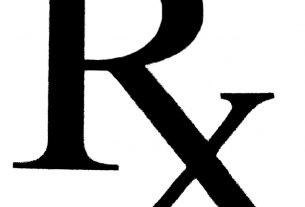**** HEALTH/WELLNESS Media Release
11 New Cases of COVID-19, 16 Recoveries
—————————————————————-
Today, November 2, Nova Scotia is reporting 11 new cases of COVID-19 and 16 recoveries.
There are five cases in Central Zone, four cases in Eastern Zone and two cases in Northern Zone.
On November 1, five schools were notified of an exposure(s) at their school. As always, all staff, parents and guardians are notified of exposures if a positive case (student, teacher or staff) was at the school while infectious. A list of schools with exposures is available online: https://backtoschool.ednet.ns.ca/school-exposures
As of today, Nova Scotia has 161 active cases of COVID-19. Of those, eight people are in hospital.
On November 1, Nova Scotia Health Authority’s labs completed 1,697 tests.
As of November 1, 1,577,463 doses of COVID-19 vaccine have been administered. Of those, 763,954 Nova Scotians have received their second dose, and 3,238 eligible Nova Scotians have received a third dose.
Since August 1, there have been 1,528 positive COVID-19 cases and seven deaths. Cases range in age from under 10 to over 90. There are 1,360 resolved cases. Cumulative cases may change as data is updated in Panorama.
Testing advice:
Nova Scotians with or without symptoms can book a test at: https://covid-self-assessment.novascotia.ca/en for COVID-19 for COVID-19 testing centres across the province. Those eligible to receive asymptomatic testing are listed at: https://www.nshealth.ca/visit-covid-19-testing-site . Those with no symptoms who do not meet the criteria are encouraged to use one of the rapid testing pop-up sites if they want to be tested. Some public health mobile unit clinics also offer drop-in testing; this will be noted in promotions.
Anyone with COVID-19 symptoms is advised to self-isolate and book a COVID-19 test.
Anyone advised by public health that they were a close contact needs to complete a full 14-day quarantine, regardless of test results, unless they are fully vaccinated. If they are fully vaccinated at least 14 days before the exposure date, they do not need to self-isolate as long as they are not experiencing any COVID-19 symptoms. They should still get tested and should monitor for symptoms up to 14 days after the exposure date. If symptoms develop, they should get tested and self-isolate until they receive a negative test result.
Symptoms and self-assessment:
Nova Scotians should visit https://covid-self-assessment.novascotia.ca/ to do a self-assessment if in the past 48 hours they have had or are currently experiencing:
— cough (new or worsening)
Or two or more of the following symptoms:
— fever (chills, sweats)
— headache
— runny nose or nasal congestion
— sore throat
— shortness of breath or difficulty breathing
People should call 811 if they cannot access the online self-assessment or wish to speak with a nurse about their symptoms.
Anyone with symptoms should immediately self-isolate and book a test.
Quick Facts:
— a state of emergency was declared under the Emergency Management Act on March 22, 2020, and has been extended to November 14, 2021
Additional Resources:
Nova Scotians can find accurate, up-to-date information, handwashing posters and fact sheets at: https://novascotia.ca/coronavirus
More information on COVID-19 case data, testing and vaccines is available at: https://novascotia.ca/coronavirus/data/
More information about public health text notifications of positive COVID-19 cases and close contacts is available here: https://www.nshealth.ca/news/public-health-begins-contacting-positive-covid-19-cases-close-contacts-text-message
Government of Canada: https://canada.ca/coronavirus or 1-833-784-4397 (toll-free)




